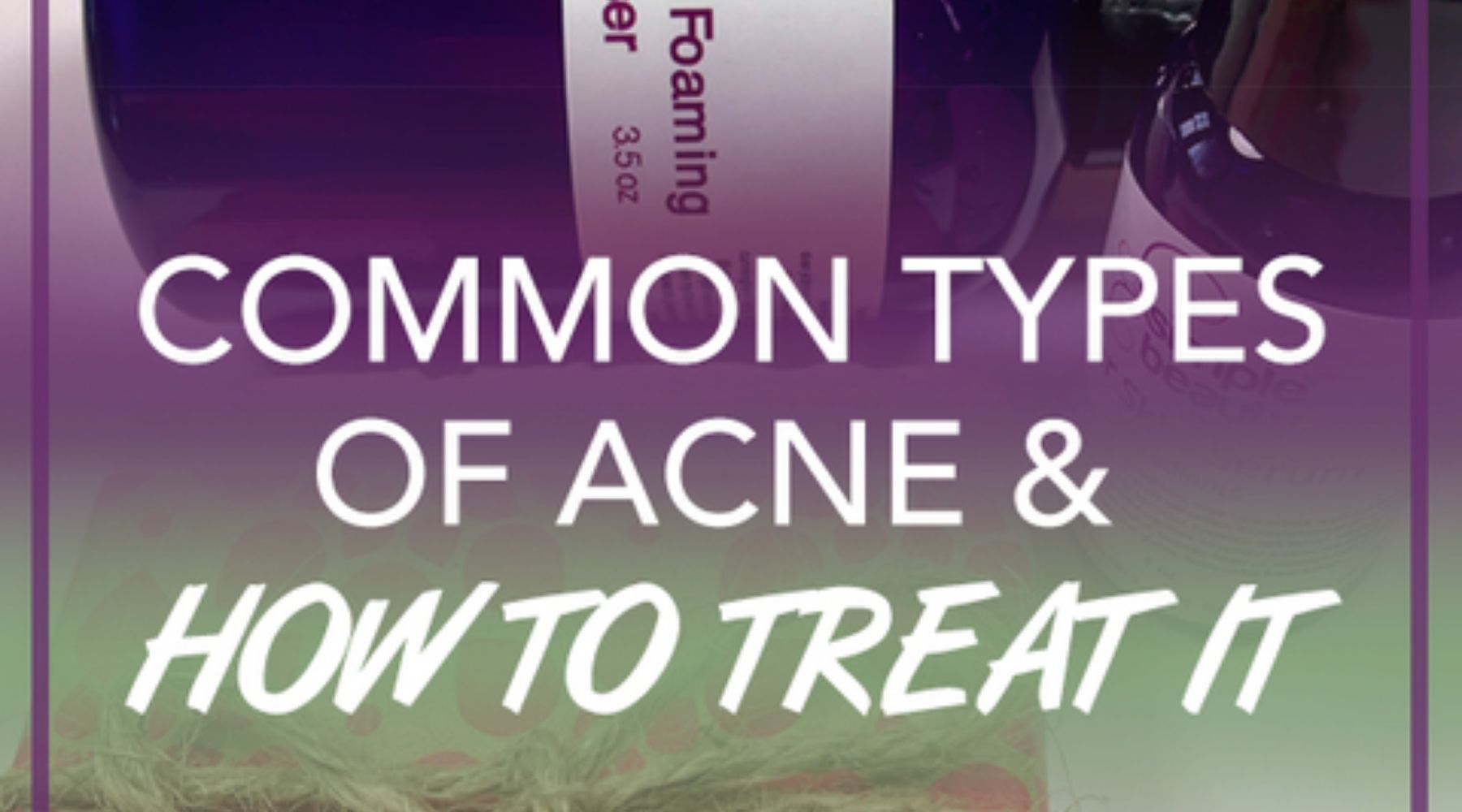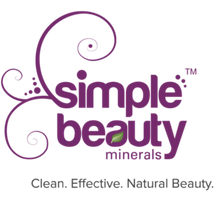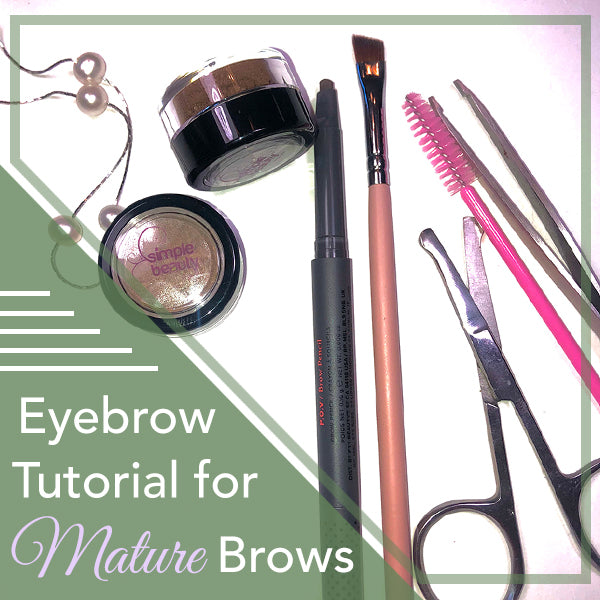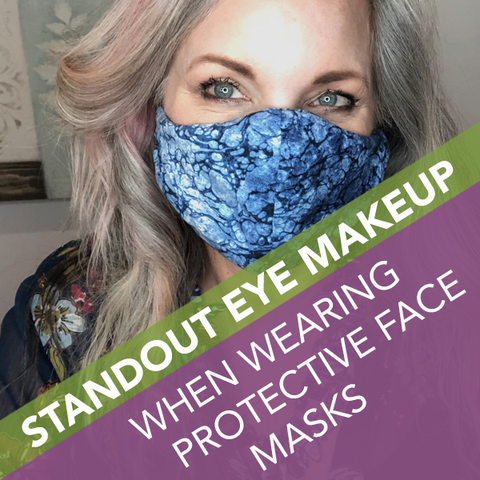Common Types of Acne & How To Treat It (with video)

The 3 most common types of acne and the clean beauty solutions.
What is acne?
Acne is an inherited disorder of the pore.
Acne-prone pores shed five times more dead skin cells than a normal pore. Not only do skin cells shed at an accelerated rate, they are also mingling with excess oil that is common within the acne-prone pore. This interaction produces a sticky consistency that is difficult for the skin to shed properly. This abnormal shedding ultimately leads to the formation of a microcomedones under the skin.
Basically, acne is the result of your hair follicles becoming plugged with oil and dead skin cells - which then causes whiteheads, black heads and pimples.
The Common Types of Acne
Whiteheads - closed, plugged pores
Blackheads - open, plugged pore which turns brown as it is exposed to air
Papules - small, tender bumps which can be brown, pink, purple or red in color; Typically no pus, and has a rash-like appearance. They develop when whiteheads or blackheads cause so much irritation that they damage some of the surrounding skin, leading to inflammation.
Pimples - papules with pus - aka: pustules - larger, tender bumps with a defined circular center. The center is filled with whitish or yellowish pus, and the bump has a pink or red base.
Nodules - large, solid, painful, beneath the skin
Cystic - large, soft, painful, red or white lumps, pus filled, deeper than nodules. This is the most severe form of acne.

What Causes Acne
4 Main Causes
1. Excess oil production
2. Pores clogged with dead skin and excess oil
3. Bacteria - P acnes
4. Excess hormone activity
Additional factors that make it worse
There are a few unexpected culprits, and here are a few tips to acne-proof your lifestyle.
Diet
High-glycemic foods and dairy can mess with your hormones; try cutting these out and see if your skin improves.
https://www.ncbi.nlm.nih.gov/pmc/articles/PMC2836431/
Stress
A boost in cortisol (a stress hormone) can send oil glands into overdrive, so maybe it’s time to try a meditation app. A warm soak with a few drops of Lavender Oil isn't such a bad idea either.
Sleep
Skin conditions like eczema worsen with poor sleep; acne can too. Make sure to get the seven to nine hours recommended by the National Sleep Foundation. Strive for a regular hit-the-hay time to enhance your sleep.
Your Pillowcase
It could be harboring bacteria— change it once a week. And get yourself a silk one to combat sleep wrinkles while your at it.
Hair Products
Certain ingredients are great for strands but can wreak havoc on skin around the hairline and on the shoulders and back.
Clean Your Screen
When was the last time you cleaned your phone? According to a study conducted at the University of Arizona, a mobile phone can carry 10 times more bacteria than a toilet seat. So each time you hold your phone up to your ear, you’re essentially exposing your skin to the germs that your device is carrying, which may cause a future breakout. OK. Ewww.
Don't Touch Your Face
Where have we heard that before?
Tough to avoid, I know. Do your best. Be mindful.
Be Mindful of Objects That Press
Anything that presses and causes friction: helmets, tight collars, backpacks, and yes, face masks.

Less is more
If you’re tempted to try everything in your medicine cabinet at once, don’t.
A pared-down routine is actually the most effective way to tackle skin that’s inflamed.
Remember...
Begin with Over The Counter products such as Simple Beauty Skin and the recommended products listed here.
If after few months you don't see results, up your game. Time to visit a dermatologist.
Product Highlights
Clear Skin Serum contains salicylic acid, which is most effective for white and black heads.
The ingredient benzoyl peroxide is microbial and reduces P ances bacterial, most effective on pustules.
Retin A, in the form of Adapalene/Differin - the only one available OTC, regulates cell turnover to prevent clogging and reduces redness.
Remember, this process takes several weeks to months.
For more detailed information watch the video below.
SHOP This Post
 |
 |
 |
 |
 |
 |
| Benzoyl Peroxide | Differin Adapalene Gel |
More about P acnes bacteria:
https://immunology.sciencemag.org/content/1/4/eaah4609
and
**DISCLOSURE: Hey beautiful! I may be an affiliate for some of the products that I recommend on the Simple Beauty Blog. If you purchase those items through my links, I will earn a small commission. You will NEVER pay more when buying a product through my link. Plus, when you order through my link, it helps support the Simple Beauty Blog, so I can continue to offer you lots of great free information.





